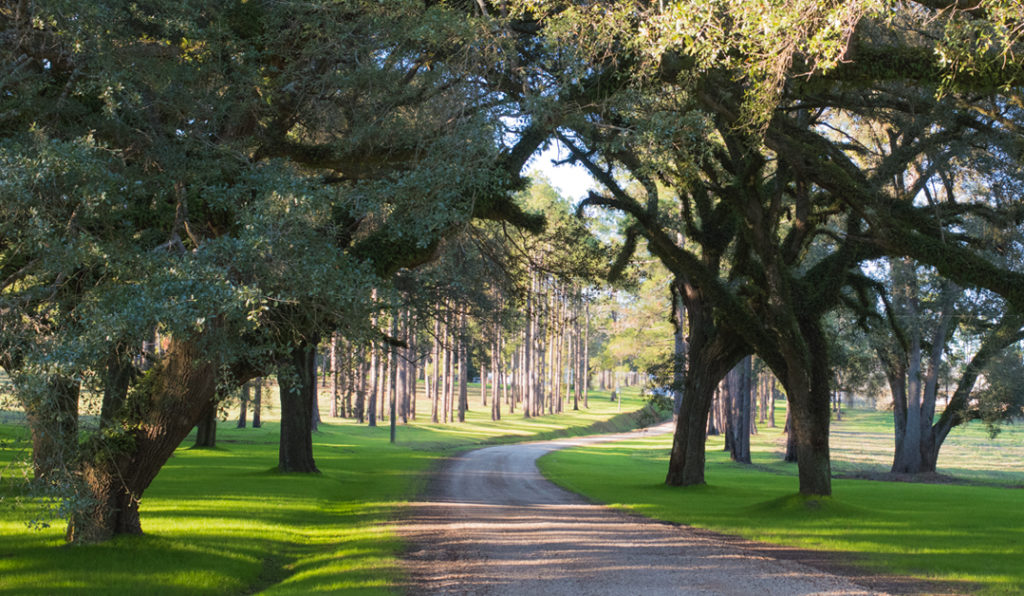Bud Earp had made an appointment to see Ben at Four on Friday by calling Joanne.
Ben knew what he wanted because his dad Walter Earp had come to see Ben a week before to warn him. Since then Ben had been maneuvering.
Walter was manager and head dog man on Pinion Pine Plantation outside Thomasville, a quail plantation with a hundred-twenty-year history of Yankee ownership since a Cleveland banker bought it from a Georgia cracker-turpentiner.
Walter had come to Ben’s office to warn him of Bud’s intentions. Bud was dead set on striking out on his own as an over-the-road bird dog trainer/field trial handler. Walter wanted Ben to talk Bud out of his dream. The risks were too great, the odds too long, Walter figured, and Ben had to agree.
But there might be another way, Ben was thinking, and secretly plotting. He knew things he could not yet tell Walter or Bud that just might offer Bud at least part of his dream. It would depend on two long shots. The first, could Ben negotiate the purchase of Dry River Plantation for Bill Gaps, a Silicon Valley whiz kid who had come up with an app(whatever that was—Ben had no clue) that had turned his start-up company into a Unicorn (Ben knew what that was thanks to Google and it was not a mythical horse with a horn protruding from its forehead, it was a non-public start-up company worth a billion dollars based on its latest round of private equity funding).
Ben met with Bud and convinced him to hold off on his plan. “Give me a bit of time and I may have a better way to get you most of what you want,” Ben told Bud. So Bud went back for another season working with his dad.
Bill Gaps was dead set on buying the plantation but doing it depended on Ben, acting as straw man, negotiating a purchase option and Bill taking his Unicorn public before the option expired. Ben had explained to Bill that to have a chance he would have to be willing to pay serious money for the option and real serious money for the purchase price. Bill said the first would be no problem and the second would depend partly on luck with the timing of the IPO, which Bill could not completely control—the IPO market had a mind of its own, the bankers working for Bill said.
So far Ben believed he knew about what the purchase price would have to be, but he was still exploring what the owner would demand as the non-refundable cost of the option. Then he learned something that he hoped would give him the edge he would need to get an acceptable deal for Bill.
He learned that Dry River Plantation’s owner had a short time to live. Just how short Ben did not know. But he knew a deal structure that just might make the seller set a reasonable purchase price by allowing him to lawfully avoid capital gains tax on the sale of Dry River while giving him reasonable assurance the deal would go through.
Ben first explained the structure to his client, Bill Gaps. Ben would offer the owner 25% of the purchase price for the option. It would be non-refundable, so if Bill Gaps (an undisclosed principal) did not exercise the purchase option Dry River’s owner would keep the option money and Dry River Plantation. If the option were exercised the option money would be credited to the purchase price. If the option were exercised after Dry River’s owner’s death he and his estate would owe no capital gains tax. The option agreement would allow the buyer to exercise his option only after the owner’s death or the passage of three year’s time, and if the owner died in the three years the option must be exercised within thirty days after the death but not before eighteen months from signing the option (thus giving Bill Gaps time to complete his IPO, Gaps hoped). To sweeten the deal further Bill Gaps would rent Dry River from the signing date until the sale closed or the option expired unexercised. Thus the owner would be relieved of the considerable cost of carrying Dry River, and Bill Gaps would have its use.
“Sounds like a win-win to me,” Bill Gaps said with a grin when Ben finished. Now Ben had to convince first Dry River’s owner’s lawyer of that, and then that owner, a notorious hard bargainer, according to plantation country rumor (Ben had never met him, but he knew he hated paying taxes, like almost all the real wealthy folks Ben had known—he was Sam Nixon’s patient and Sam had confirmed Ben’s suspicion he hated paying taxes, not a breach of Sam’s medical ethics, Sam figured, because all rich Yankees hated taxes, in Sam’s experience).
Ben went to work, and in a month Bill Gaps had his option and use of Dry River on a net-net lease and Dry River’s owner had 25% of the purchase price in his Boston bank. If Gaps bought the Plantation after its owner died (as expected) the owner’s heirs would not owe capital gains tax because Dry River would have gained a cost basis step on its owner’s death.
Now Ben went to work on his second project, to convince Bill Gaps to hire Bud Earp as his dog man and hunt manager (the general manager of Dry River would continue as such under the Bill Gaps regime). He had little trouble getting Bud hired for he had earned a reputation for competence under his father’s tutelage.
Now Ben’s truly hard task began, converting Bill Gaps from a bird shooter (his motivation for wanting Dry River) to a bird dog field trial fan and then sponsor.
To be continued…
